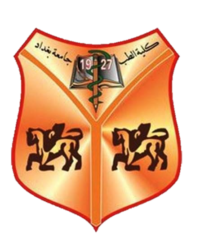Curriculum Description
This course description provides a necessary summary of the most important characteristics of the course and the expected learning outcomes for the student to achieve evidence of whether they made the most of the available learning opportunities. It must be linked to a description of the program.
General Description
| Category | Details |
|---|---|
| Name of Organization: | Baghdad College of Medicine |
| Department: | Not specified |
| Module Name: | Student Self-Component 3 |
| Course Pattern: | Large group and small group lectures |
| Semester and Year: | 3rd Year / Semester 2 |
| Total Course Hours: | 28 practice hours, 2 theory hours |
Goal of the Course
- Read and understand the main points in an article.
- Appraise the "introduction section" of articles.
- Out-line the "Methodology section" of articles.
- Analyze the "Result section" of articles.
- Appraise the "Discussion and conclusion section" of articles.
- Summarize articles.
Outcome of this Module
A. Cognitive and Theoretical Goals:
As a stakeholder for medical schools; patients must have the best quality of care. One of the things that improve the quality of patient care is Evidence-Based Medicine (EBM). Reading medical journals and appraising scientific literature is an integral part of EBM. So critical reading skills are essential, and it is very important to MASTER these skills.
B. Skills:
- To recognize dependable (valid) researches.
- To master self-reading and extracting valid medical information by oneself.
- To acquire skills in searching medical websites.
Methods of Learning
- Team-Based Lecture.
Methods of Assessment
- Checklist assessment.
Values and Sentimental Goals
- Acquiring discussion skills.
- How to work within a team.
- Working for evidence-based medicine.
General and Qualifying Skills (Other Skills Related to Employability and Personal Development)
- Identify the method of searching for solid scientific sources on approved medical websites.
- Identify the method of reading scientific research and distinguishing the sober from the others through the general rules of writing research.
- Learn how to identify errors, if any, in scientific research by knowing the basic rules.
Infrastructure
- Weeks: 1 week
- Hours: 1
- Topics: SSC
- Weeks: 2 weeks
- Hours: 3
- Topics: Application of the previous lecture
- Weeks: 3 weeks
- Hours: 1
- Topics: Teaching about website medical information searching
- Weeks: 4 weeks
- Hours: 3
- Topics: Application of the previous lecture
Course Books Required
None
Main References (Sources)
Websites
Recommended Resources
Continuously updating.
Electronic References
- PubMed
Course Development Plan
- Involving multiple professors to get benefit from their experience in valid scientific publishing.

